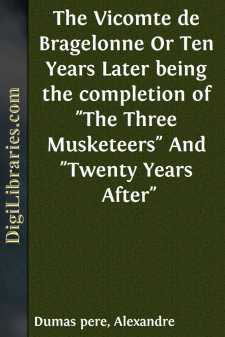Categories
- Antiques & Collectibles 13
- Architecture 36
- Art 48
- Bibles 22
- Biography & Autobiography 815
- Body, Mind & Spirit 144
- Business & Economics 28
- Children's Books 18
- Children's Fiction 14
- Computers 4
- Cooking 94
- Crafts & Hobbies 4
- Drama 346
- Education 58
- Family & Relationships 59
- Fiction 11833
- Games 19
- Gardening 17
- Health & Fitness 34
- History 1378
- House & Home 1
- Humor 147
- Juvenile Fiction 1873
- Juvenile Nonfiction 202
- Language Arts & Disciplines 89
- Law 16
- Literary Collections 686
- Literary Criticism 179
- Mathematics 13
- Medical 41
- Music 40
- Nature 179
- Non-Classifiable 1768
- Performing Arts 7
- Periodicals 1453
- Philosophy 65
- Photography 2
- Poetry 896
- Political Science 203
- Psychology 44
- Reference 154
- Religion 515
- Science 126
- Self-Help 85
- Social Science 82
- Sports & Recreation 34
- Study Aids 3
- Technology & Engineering 59
- Transportation 23
- Travel 463
- True Crime 29
Our website is made possible by displaying online advertisements to our visitors.
Please consider supporting us by disabling your ad blocker.
The Black Tulip
Categories:
Description:
Excerpt
Chapter 1. A Grateful People
On the 20th of August, 1672, the city of the Hague, always so lively, so neat, and so trim that one might believe every day to be Sunday, with its shady park, with its tall trees, spreading over its Gothic houses, with its canals like large mirrors, in which its steeples and its almost Eastern cupolas are reflected,—the city of the Hague, the capital of the Seven United Provinces, was swelling in all its arteries with a black and red stream of hurried, panting, and restless citizens, who, with their knives in their girdles, muskets on their shoulders, or sticks in their hands, were pushing on to the Buytenhof, a terrible prison, the grated windows of which are still shown, where, on the charge of attempted murder preferred against him by the surgeon Tyckelaer, Cornelius de Witt, the brother of the Grand Pensionary of Holland was confined.
If the history of that time, and especially that of the year in the middle of which our narrative commences, were not indissolubly connected with the two names just mentioned, the few explanatory pages which we are about to add might appear quite supererogatory; but we will, from the very first, apprise the reader—our old friend, to whom we are wont on the first page to promise amusement, and with whom we always try to keep our word as well as is in our power—that this explanation is as indispensable to the right understanding of our story as to that of the great event itself on which it is based.
Cornelius de Witt, Ruart de Pulten, that is to say, warden of the dikes, ex-burgomaster of Dort, his native town, and member of the Assembly of the States of Holland, was forty-nine years of age, when the Dutch people, tired of the Republic such as John de Witt, the Grand Pensionary of Holland, understood it, at once conceived a most violent affection for the Stadtholderate, which had been abolished for ever in Holland by the "Perpetual Edict" forced by John de Witt upon the United Provinces.
As it rarely happens that public opinion, in its whimsical flights, does not identify a principle with a man, thus the people saw the personification of the Republic in the two stern figures of the brothers De Witt, those Romans of Holland, spurning to pander to the fancies of the mob, and wedding themselves with unbending fidelity to liberty without licentiousness, and prosperity without the waste of superfluity; on the other hand, the Stadtholderate recalled to the popular mind the grave and thoughtful image of the young Prince William of Orange.
The brothers De Witt humoured Louis XIV., whose moral influence was felt by the whole of Europe, and the pressure of whose material power Holland had been made to feel in that marvellous campaign on the Rhine, which, in the space of three months, had laid the power of the United Provinces prostrate.
Louis XIV. had long been the enemy of the Dutch, who insulted or ridiculed him to their hearts' content, although it must be said that they generally used French refugees for the mouthpiece of their spite....












